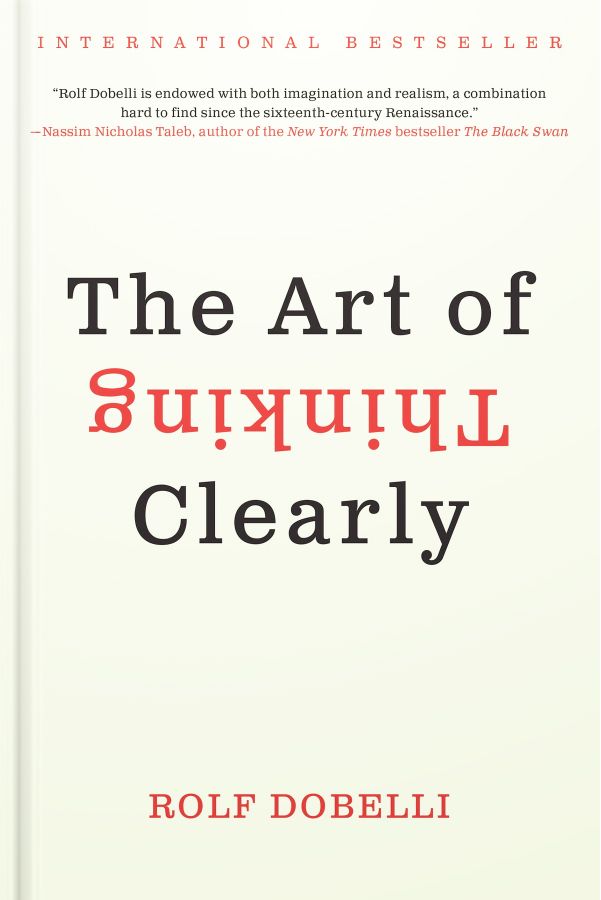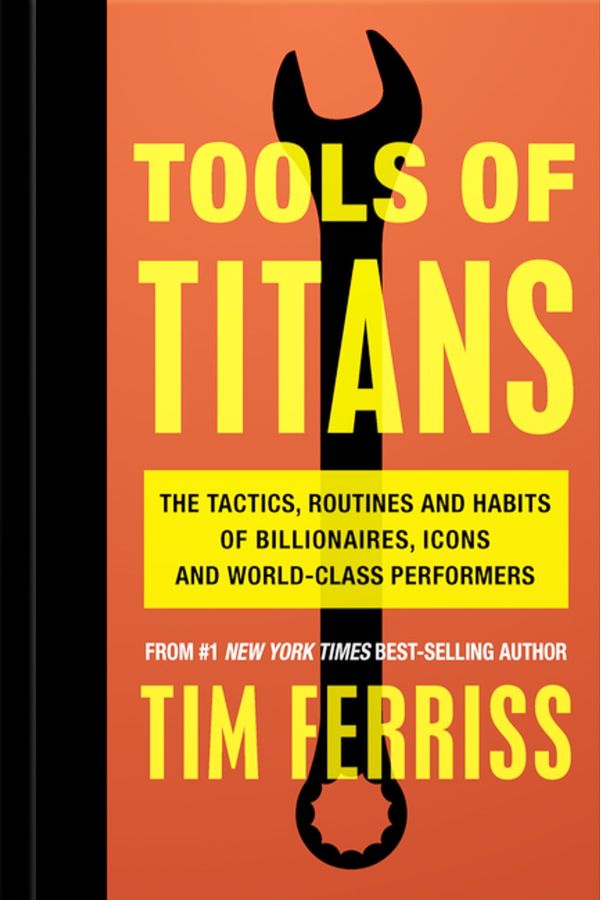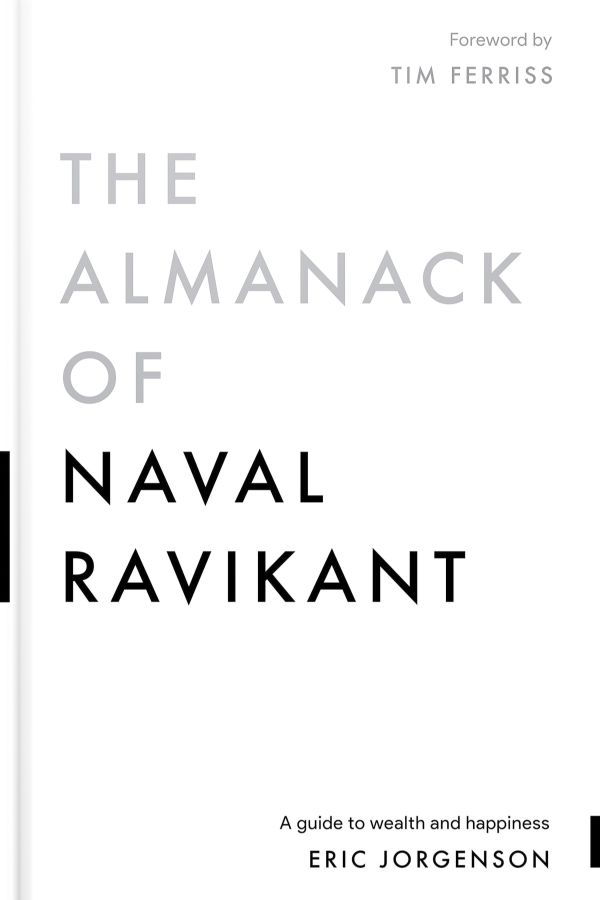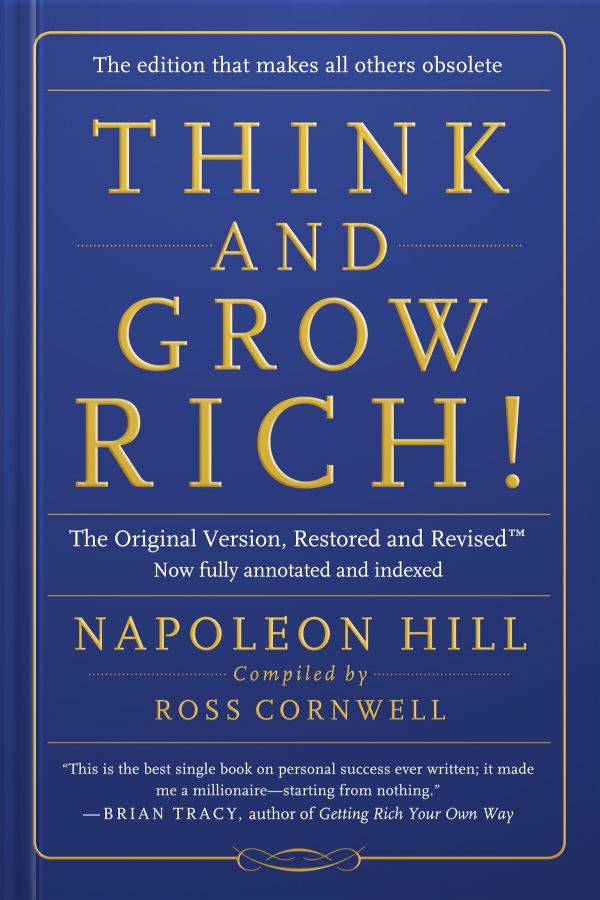
Psychology
The Art of Thinking Clearly by Rolf Dobelli
1. The Rarity of Success
Despite the prevalence of success stories in media, success remains an elusive, challenging, and uncommon goal.
Dobelli aptly notes
"Our brains are wired for stories, but that comes with side effects. One downside is that facts are no match for narratives."
2. The Pitfall of Confirmation Bias
The tendency to favor information confirming our preconceptions, or confirmation bias, hinders clear thinking.
Dobelli advises:
"Search for the pieces of evidence that disprove your most cherished beliefs and, conversely, support a theory that you really do not believe in."
3. The Dangers of News Consumption
Dobelli compares news to sugar for the mind—appealing, easily digestible, but ultimately harmful in the long run.
He warns:
"Like alcohol or drugs, news is a toxic, threatening and addictive substance. Stay away from it."
4. The Importance of Independent Thought in Groups
While shared beliefs can unify groups, they can lead to collective blind spots.
Even if unpopular, speaking out ensures a diversity of perspectives, which Dobelli says is crucial for avoiding groupthink.
5. The Power of Loss Aversion
People are often more motivated by the fear of loss than the potential for equivalent gain.
Dobelli explains:
"We feel a loss more strongly than a gain of the same size."
6. The Impact of Compounding
Our minds struggle with understanding the power of compounding.
Dobelli encourages investing in skills, knowledge, relationships, and finances to experience its benefits.
He writes;
"Compound interest is the most powerful force in the universe."
7. The Significance of Framing
How something is presented or "framed" can be more influential than the information itself.
Dobelli illustrates this by comparing "99% fat-free" versus "1% fat," showing the importance of positive framing.
8. The Misleading Nature of Averages
Averages can distort the understanding of statistics and metrics. Including outliers, like Elon Musk's income, in a standard can lead to skewed results.
Dobelli states:
"Avoid extremes; the middle path is generally the wisest."
9. The Limitations of Money as a Motivator
In companies where employees work solely for financial gain, money is a motivator.
However, passion, purpose, and impact are far more motivating factors for many.
10. The Salience of Presence
We often notice the presence of something more than its absence.
Dobelli points out how a disease's prevalence, like COVID-19, is more noticeable than the numerous diseases that don't afflict us daily.
He says:
"Reality is not a given: it has to be continually sought out, held — I am tempted to say salvaged."
Understanding these principles can improve our thought processes and make more informed decisions.




















